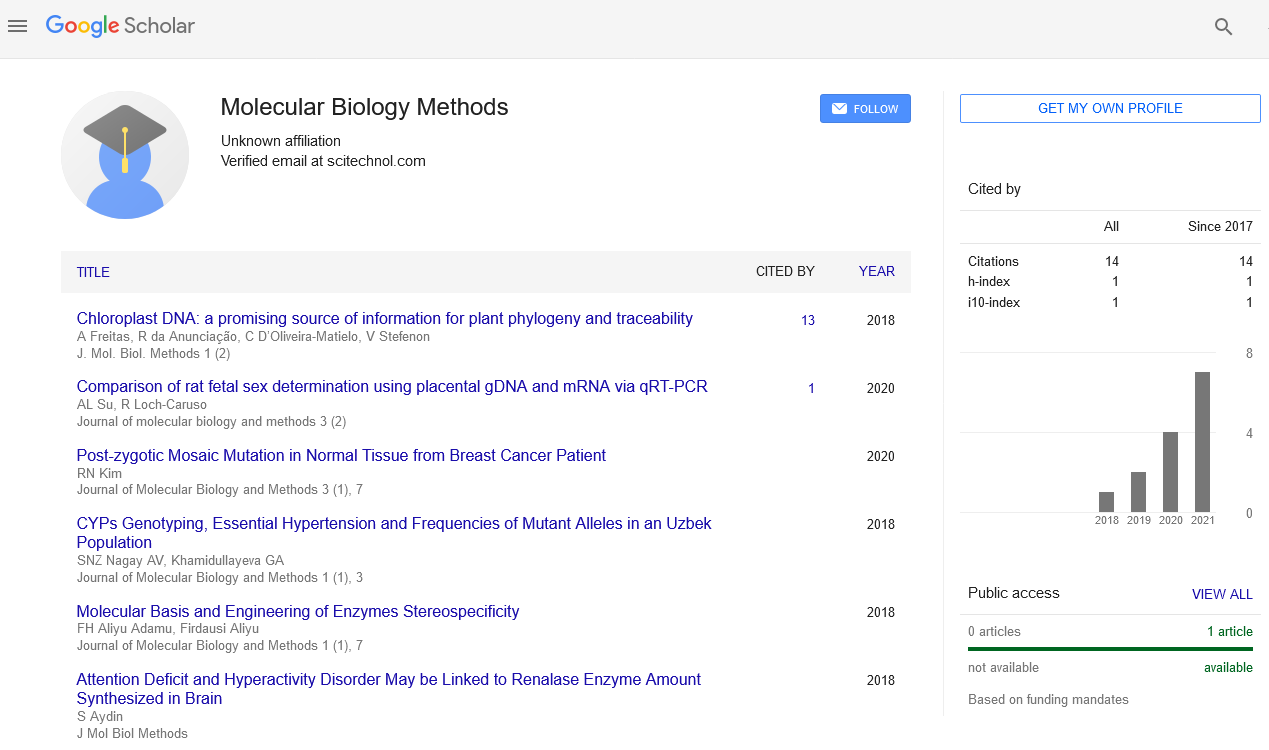Prognostic significance of 14-3-3 and its role in regulating tumor progression of hepatocellular carcinoma
Jun-Yang Liou
National Health Research Institutes, Taiwan
: J Mol Biol Methods
Abstract
14-3-3 proteins are implicated in regulating tumor progression of various types of human malignancies. We have previously reported that expression of 14-3-3ε is associated with prognostic outcomes of hepatocellular carcinoma (HCC) patients. Results from the in vitro experiments and in vivo xenograft mice model indicate that 14-3-3 proteins promote HCC cancer cell proliferation, epithelial-mesenchymal transition (EMT), cell migration, invasion and tumor growth. Overexpression of selective 14-3-3 proteins is significantly correlated with microvascular invasion, high risk of metastasis as well as worse overall survival rate of HCC patients. These results suggest that increased expression of 14-3-3 proteins play important roles in regulating HCC tumor development. We have identified several downstream factors including FAK, Par-3, Zeb-1, β-catenin, and AKR1B10 are regulated by 14-3- 3 proteins in HCC. We found 14-3-3ε induces Zeb-1, thereby suppressing E-cadherin expression and promoting EMT. Our study indicated that 14-3-3ε upregulates AKR1B10 through a β-catenin-dependent mechanism and AKR1B10 is involved in promoting cancer cell proliferation and tumor growth of HCC. Moreover, we have examined the prognostic value of 14-3-3ε, MT-1 and AKR1B10 expressions in HCC. We found that 14-3- 3ε positivity was significantly associated with decreased MT-1 expression in HCC. Patients with decreased MT-1 expression had worse survival rates and a higher risk of metastasis than 14- 3-3ε positive HCC patients with unchanged MT-1 expression. Distinct expression patterns of 14-3-3ε/MT-1/AKR1B10 were significantly associated with the metastatic incidence and survival rates of HCC patients. Patients with negative 14-3-3ε staining in primary tumors had better prognostic outcomes. In contrast, patients with positive 14-3-3ε staining, decreased MT-1 expression and no increase in AKR1B10 expression in primary tumors had the worst overall and disease-free survival rates and the highest metastatic risk. Thus, 14-3-3ε, AKR1B10, and MT-1 act as potential prognostic biomarkers of HCC.
Biography
Jun-Yang Liou has his expertise in molecular signaling in regulating cell proliferation and differentiation. His research interests focus on these areas: (1) Role of 14-3-3 proteins and their associated downstream targets in cancer cell survival, proliferation, epithelial-mesenchymal transition, migration as well as tumor progression and metastasis of hepatocellular carcinoma. He has identified several downstream signal targets of 14-3-3 that contribute to regulate tumor progression of hepatocellular carcinoma. (2) Molecular mechanisms and signal pathways in regulating stem cell differentiation and proliferation. He has identified that inhibition of ROCK signaling contribute to neural and cardiac differentiation of mouse embryonic stem and induced pluripotent stem cells.
E-mail: jliou@nhri.org.tw
 Spanish
Spanish  Chinese
Chinese  Russian
Russian  German
German  French
French  Japanese
Japanese  Portuguese
Portuguese  Hindi
Hindi 